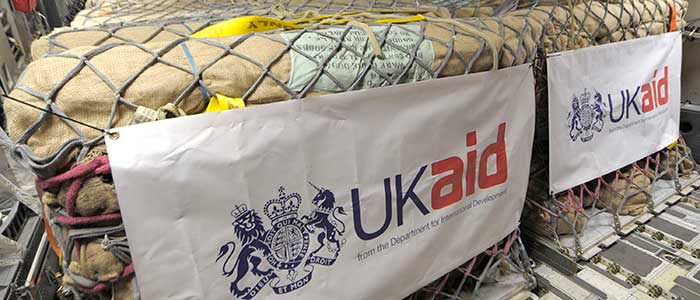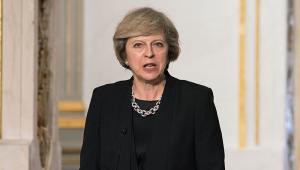In a bulletin published yesterday, the Centre for Policy Studies said that the target means the UK channels too much money through inefficient international institutions, doesn’t achieve value for money and spends large amounts on aid at a time when the public finances are struggling.
The think-tank, which is thought to be influential in shaping conservative policy, added that while it is “well established” that free trade leads to reduced poverty, the link between aid and poverty reduction is “unclear”.
The UK is one of only seven countries in the world to achieve a decades-old target to spend 0.7% of gross national income on aid after enshrining it in law in 2015. It saw the country spend £12.2bn ($15bn) overseas that year, a figure that rises each year as the economy grows.
This commitment has become the subject of heated debate within the country, with sections of the press, public and political class staunchly opposing to the target.
The CPS said that it has led to rushed spending and ineffective distribution as the country’s aid budget has grown, increasing nearly fourfold since the late 1990s.
UK aid delivered through the European Union (totalling £1.4bn ($1.7bn) in 2015) is particularly problematic, it said, highlighting that the European Commission spends 18% more of its aid budget on administrative costs than DFID.
It also noted that the commission focuses too much on the EU’s neighbours rather than poorer countries elsewhere in the world, and that the UK’s Department for International Development has little influence over how the commission spends it aid budget, despite contributing a hefty portion of it.
DFID spends just over one third of its budget through international institutions like the commission or development banks like the World Bank, equal to around £4.5bn ($5.5bn) in 2015.
The think-tank highlighted that this has drawn criticism in the past. The country’s aid watchdog has warned that DFID’s relationships with its international partners risk becoming “too big to fail” and The Times newspaper has found that billions in UK aid is being ‘dumped’ into World Bank trusts, reportedly as a result of the UK rushing to meet the target each year.
The think-tank said that the UK will be able to “reclaim and take control” of some of the aid funds spent through international institutions when it leaves the European Union. However, it said this will continue to be spent poorly if the 0.7% target remains in place.
It pointed out that the UK’s National Audit Office has in the past warned that DFID has had to quickly spend money towards the end of the financial year in order to meet the target, “making it more difficult to achieve value for money”.
In 2015, the UK actually overspent by £172m ($211m), the CPS stated. Regardless of the problems with the 0.7% target, it said the effectiveness of the UK’s aid budget, or aid in general, in reducing poverty was not as conclusive as that for free trade.
It said that UK aid had achieved some success overseas, saving children’s lives, providing access to clean water and sanitation, and supporting education, jobs and humanitarian protection in Syria.
Nevertheless, it said the government should go further than pushing for greater scrutiny of aid and attempt to ensure it is aligned with the British national interest. While these efforts are welcome, it said “it is also time for the government to review the [legislation] that enshrines the 0.7% target into law”.
Responding to CPS’ bulletin, Saira O’Mallie, of anti-poverty group the ONE Campaign, said CPS had “omitted” the fact that UK aid has helped millions to escape poverty and has contributed to building secure futures for the world’s poorest, preventing migration and extremism.
She noted that all government departments can be criticised for wasting taxpayers’ money, and that DFID’s budget is arguably the most transparent and most scrutinised.
“Surely the scandal would be that prime minister Theresa May listens too much to the selective findings of such reports and scraps UK aid to silence the critics without the UK public being made fully aware that their security and safety is so closely linked to those living in extreme poverty, and that without their generosity, all our futures would be threatened.”














